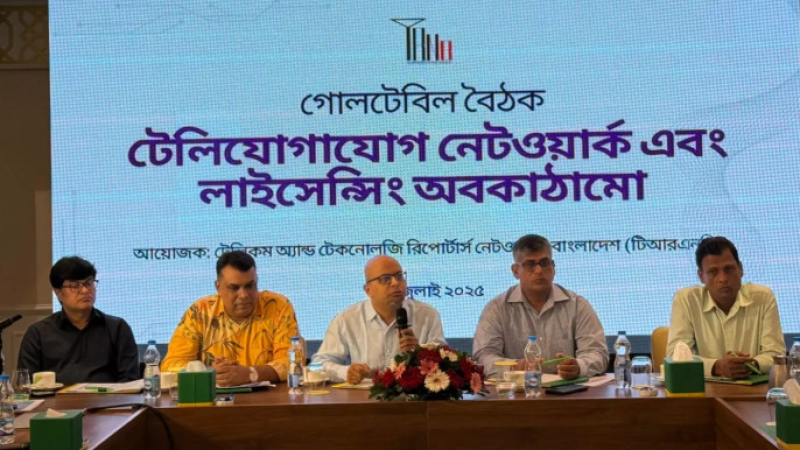- India Sees 9% Drop in Foreign Tourists as Bangladesh Visits Plunge |
- Dhaka Urges Restraint in Pakistan-Afghan War |
- Guterres Urges Action on Safe Migration Pact |
- OpenAI Raises $110B in Amazon-Led Funding |
- Puppet show enchants Children as Boi Mela comes alive on day 2 |
New Telecom Policy Targets 15 Years of Sector Misrule

Faiz Ahmad Taiyeb, Special Assistant to the Chief Adviser on Posts, Telecommunications and ICT.
The interim government is drafting a new telecom policy aimed at ending 15 years of irregularities in the sector and ushering in a generational shift in service delivery, said Faiz Ahmad Taiyeb, Special Assistant to the Chief Adviser on Posts, Telecommunications and ICT.
Speaking at a roundtable on “Telecom Network and Licensing Policy Reform” in Dhaka on Saturday, Taiyeb said the upcoming policy will move the focus from basic connectivity to service-oriented, next-generation networks.
“The new generation needs new solutions. We're clearing the clutter in the sector, even if that affects vested interests,” he said, adding that logical stakeholder suggestions would be considered.
He criticised operators for earning Tk 400 crore in dividends while still expressing dissatisfaction, urging them to align with national interests. Taiyeb clarified that licensing would no longer be arbitrarily limited but based on performance and obligations. Licences issued solely for toll collection will be phased out.
The new policy also aims to improve service quality, with a warning to mobile operators that failure to meet expectations may lead to customer loss. Plans are underway to free up low-band spectrum and reform the overall telecom ecosystem.
BTRC Chairman Major General (retd) Md Emdad Ul Bari noted that telecom is a real-time service and stressed the need for sustainable reforms. He ruled out immediate licence cancellation and emphasised collaboration, migration planning, and policy continuity.
Posts and Telecommunications Division Secretary Zahurul Islam said the new policy will attract both domestic and foreign investment.
ISPA President Aminul Hakim urged removal of tax disparity, noting that ISPs handle 65–70% of data traffic but pay 15% tax, whereas mobile operators with a smaller share are exempt.
MTAB Secretary General Mohammad Zulfikar highlighted the gap in connectivity, pointing out that despite 65 million social media users, 90 million people remain offline. He raised concerns over rising operational costs and investment caps in the draft policy.
The event was chaired by TRNB President Samir Kumar Dey, with General Secretary Masuduzzaman Robin delivering the welcome remarks.
Among the participants were Grameenphone CEO and MTAB President Yasir Azman, Banglalink CEO Erik Aas, Teletalk MD Nurul Mabud, corporate representatives, World Bank consultant Mahtab Uddin Ahmed, and Fiber@Home CIO Suman Ahmed Sabir.

